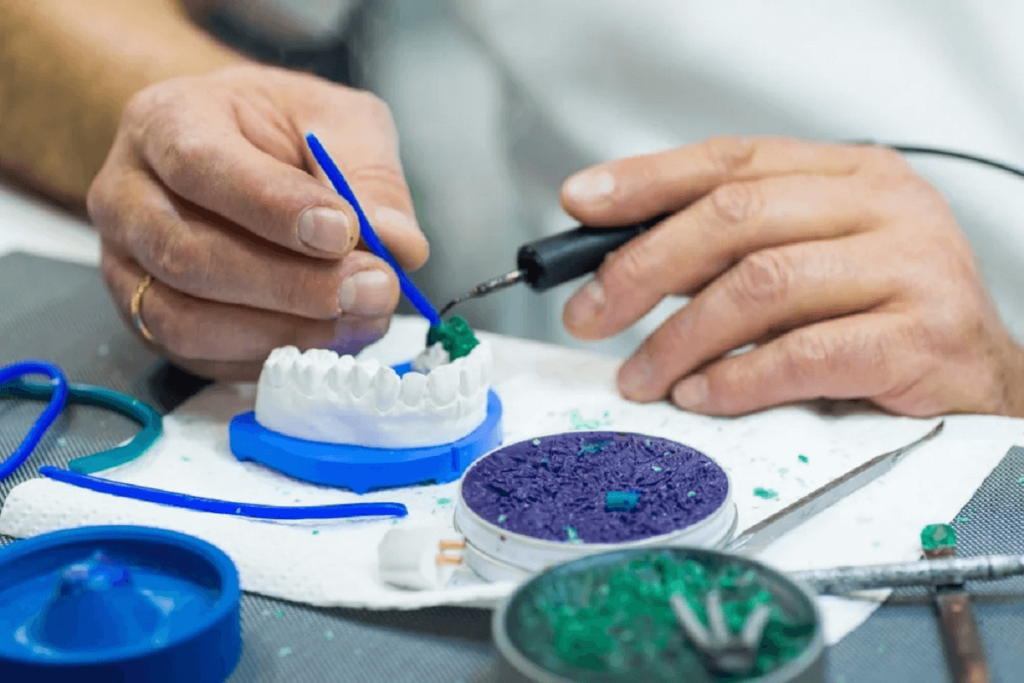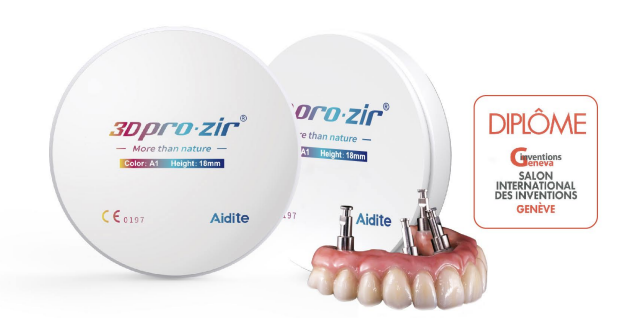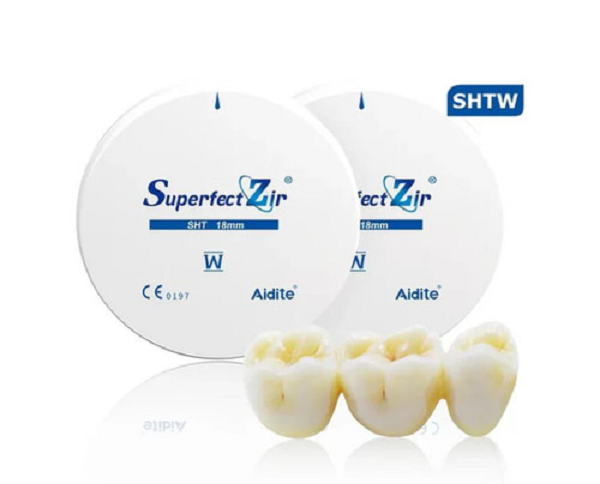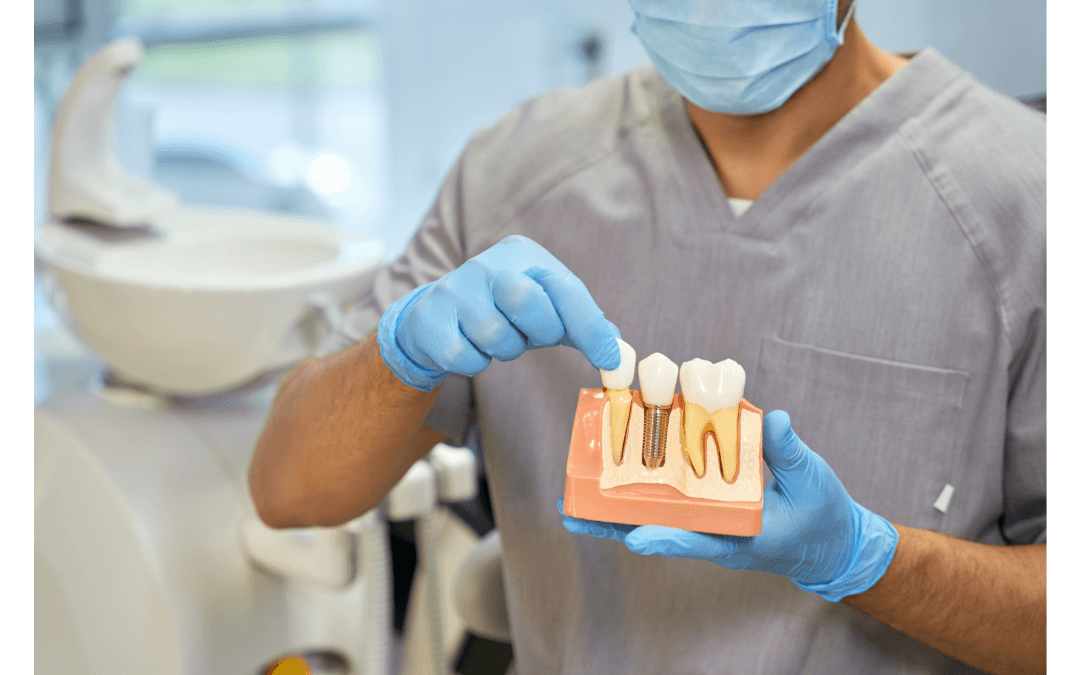Using the wrong dental implant material to make an implant can cause serious oral problems among patients. Bone loss, gum recession, and sinus damage are common among them.
If dental materials are of low quality, they can cause infection in teeth and gums. This infection becomes severe and leads to patient discomfort and gum bleeding. Furthermore, this poor material weakens the jaw over time and causes the bone to break down.
So, dentists must have proper knowledge about what the best dental implant material is? This article provides an in-depth overview of the different dental implant material types, pros, and cons. You will also explore the three best dental material suppliers.
- What are Dental Implant Materials?
- Common Types of Dental Implant Materials
- What are the Top 3 Affordable Dental Implant Material Suppliers?
- Why Does Choosing the Right Dental Implant Material Matter in Dentistry?
- Factors to Consider When Choosing Implant Material
- 1. Non-Reactive Materials
- 2. Resistance to Corrosion
- 3. Low Sensitivity to Temperature Changes
What are Dental Implant Materials?
Dental implant materials are unique materials used in dentistry to create artificial tooth roots. Dentists use these roots to replace damaged and missing teeth. These materials are placed into the jawbone to hold the artificial teeth in place. The essential purpose of the implant material is to restore normal function in the mouth. Furthermore, the implant also enhances the patient’s smile. Strength and durability are the key specifications of dental implants.

Common Types of Dental Implant Materials
Here are the details of diverse types of material used in dental implants that provide unique benefits and considerations.
1) Titanium
Titanium is the strongest dental implant material for dental implants for many reasons. This material is known for its exceptional durability and strength. It is ideal for medical and dental applications due to its nonallergic capabilities. Titanium-made dental models easily integrate with the bone and reduce the risk of infections.
Key Specifications of Titanium:
- Biocompatibility: This material is highly compatible with human tissues. It makes a natural bond with the jawbone. So, the titanium base models stay strongly in place.
- Corrosion-resistant: Titanium has the property to resist corrosion from body fluids. It means the implants won’t damage or degrade over time.
- Lightweight: Despite its strength and durability, this material is lightweight. It makes the implant as comfortable for patients.
2) Zirconia
Zirconia Material is the newest material used in dental labs to make dental models. It’s a type of ceramic that’s known for its natural appearance. Unlike titanium, zirconia is white in colour and a popular choice of patients. It’s better with natural teeth and enhances the smile or face appearance.
Key Specifications of Titanium:
- Metal-free: Zirconia is a perfect choice for patients sensitive to metal allergies. It’s free from metal components or metal alloys.
- Resistance to plaque: The outer surface of this material is smooth. It prevents the buildup of plaque and bacteria. So, this material indirectly improves oral hygiene.
- Strength: This material is strong and durable. It provides excellent support for dental implants to chew the food efficiently.

3) Ceramic
This material is similar to zirconia. They come in different forms and compositions. The most common are monolithic ceramic and ceramic-coated titanium. Dentists use this material to make dental implants and models. This biocompatible dental implant material integrates well with the bone and soft tissues of the mouth.
Key Specifications of Titanium:
- Aesthetic appearance: This material is typically off-white or tooth-coloured. It provides a natural teeth look of artificial teeth. Ceramic implants enhance the aesthetic appearance of patients.
- Gentler on gums: This material is less likely to cause irritation and gum recession. So, the dentist uses this material for those who have irritation or metal allergies.
- Non-reactive: Ceramic materials are non-reactive. It means it does not show any action with the mouth fluid or saliva. It’s a safer choice for individuals who have immune system concerns.
4) Porcelain-Fused-to-Metal (PFM)
PFM implants are a combination of metal and porcelain. This type of material uses a metal base that is covered by a porcelain crown. The best part about this material is its versatility. Dentists use this material to make implants for the front and back teeth.
- Customizable: Dentists use this material to make customized implants. You can further adjust the implants according to the patient’s mouth size.
- Affordable: This material is typically affordable as compared to other materials. This makes it a good option for those who are low-budget.
- Strength: The metal core of PFM implants provides excellent durability. It is breaking even under high chewing forces.

5) Polymers
Dental-grade polymers are another material used in dentistry to make dental implants. Dentists use this material to create temporary implants to test its compatibility with the human body. Later they use this biocompatible dental implant material to create permanent implants that integrate properly with patient bone tissue.
Key Specifications of Polymers:
- Lightweight: Despite their strength, polymers are very light in weight and comfortable for patients, which enhances their natural teeth appearance.
- Flexible: One of the greatest perks of this material is its flexibility. It reduces the risk of fracture during the healing phase or adjustment process.
- Biocompatibility: This material is biocompatible and safe for the human body. Implants made from this material don’t take any reaction with human fluid.
What are the Top 3 Affordable Dental Implant Material Suppliers?
There is a wide range of brands that claim to provide high-quality dental material. Here are the brief details of the top three brands that are well known in the market.
1) Aidite
Aidite is a brand known for its precision, strength, and accuracy. It provides high-quality dental implant materials. These materials are affordable and lightweight despite their durability. Dentists use the material of this brand to make dental implants, crowns, and veneers.
They provide high-quality Zirconia Material that is biocompatible and reliable. It’s an ideal choice for dentists who want to improve the patient’s dental treatment experience. Their super-fact Zic two-layer design enhances the aesthetics for anterior and posterior restorations.

2) Dentium
Dentium is a well-established dental material supplier in the market. Their materials are highly resistant to wear and tear during chewing. Its titanium material is ideal for patients who face oral infection after dental model adjustment.
Furthermore, the brand mainly focuses on reliability and flexibility. A wide range of custom-made Dentium implant systems are perfect to replace missing or damaged teeth. However, the material of this brand is slightly high in price.
3) Hiossen
Hiossen is a brand that provides a wide range of dental materials to make crowns and implants. They also offer titanium implants known for their strength and long-lasting performance.
Their materials improve the bone integration and aid in the regeneration of bone. Dentists can use these materials without worry about compatibility. You can use this material to make implants, crowns, and veneers without compromising model quality.

Why Does Choosing the Right Dental Implant Material Matter in Dentistry?
Well, there are a lot of reasons behind that that force you to understand the importance of quality dental material. Here are the perks of choosing the right dental implant material in dentistry.
1. Reduce Complications and Infections
Quality and durable dental material reduces the risk of complications occurring after dental treatment. Materials like titanium have natural resistance to bacteria. Dentists use this material to reduce the risk of allergy or oral infection in patients.
2. Minimize the Risk of Implant Rejection
When the implants are made of low-quality material, the human body considers this material as a foreign agent. The body never accepted this material, which led to the rejection of the model. So, it’s important to choose the material that is compatible with the human body.
3. Promote Faster Healing and Recovery
The right and durable material speeds up the healing process. They fuse the material more efficiently with the bone. This leads to faster recovery time and reduces the patient’s discomfort. So, the quality material reduces the risk of swelling.
Factors to Consider When Choosing Implant Material
When you decide to choose the material to make dental models in the lab, keep the following features or factors in mind. It helps you to choose the best one among them.
1. Non-Reactive Materials
It’s important to choose non-reactive materials like zirconia and titanium. These materials don’t cause any allergic reaction or irritation. It also reduces the risk of body rejection of implants.
2. Resistance to Corrosion
Some materials are more resistant to corrosion, like titanium. Always choose the material that is resistant to rust and corrosion. It also won’t degrade over time and will be secure without weakening or causing issues.
3. Low Sensitivity to Temperature Changes
Some materials are less sensitive to extreme temperature changes. So, it’s important to choose the material that has low sensitivity during temperature changes and prevents the gum or bones from pressure.
FAQS
What is the best material for dental implants?
Titanium is the perfect material to make implants that are durable and long-lasting. Dentists use this material to make implants that have high chewing capability. However, zirconia is also a robust and durable material used in dental restorations.
Are dental implants metal or titanium?
Dental implants are usually made of high-quality titanium alloys. This material is strong and biocompatible. It’s a reliable choice to make durable and strong implants that enhance the smile appearance of patients.
What is the most recent material for dental implants?
Dentists generally use titanium and zirconia to make reliable dental implants. However, biodegradable materials are also introduced in the market. It’s made from biodegradable polymers to provide the same features as other materials.
Conclusion
To sum up, there are different dental implant materials available in the market. Titanium, zirconia, and ceramic are the common ones among them. Each material has its own pros, cons, and specifications. So, it’s important to gain proper knowledge, like material compatibility, durability, and strength, before making any final decision. Aidite provides high-quality, cost-effective dental material. Their materials are strong and reliable. You can make dental crowns, veneers, and implants with great precision.



